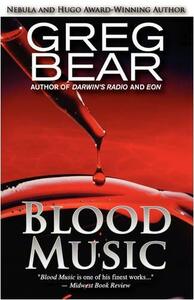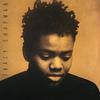Take a photo of a barcode or cover
adventurous
dark
hopeful
mysterious
medium-paced
Plot or Character Driven:
Plot
Strong character development:
No
Loveable characters:
Complicated
Diverse cast of characters:
Complicated
Flaws of characters a main focus:
Complicated
Graphic: Body horror, Death
Moderate: Gore, Misogyny, Grief, Injury/Injury detail, Pandemic/Epidemic
Minor: Medical content
Assuming this actually is one of the first "grey-goo" stories as it's lauded, it's a wild/horrifying concept. As far as what is missing: normal things that a normal man would say to a normal woman; normal things a normal woman would say to a normal man; or really any normal things that a normal human of any gender would say to any other normal human of any gender. Nobody talks like this. This one is really slathered in the 80s.
30+ years after it was written, the book is still very relevant. Indeed, you wonder why something along the same premise ('mad' scientist ignoring protocol, contaminating friends) has not happened. The story has some unexpected developments, but does get a little far fetched later on.
I'm not sure why I hadn't read this before, Greg Bear is an excellent writer. A somewhat cautionary tale of biotechnology run rampant. It may lead to disaster or a new tomorrow. Stay tuned.
I listened to the audiobook as a bedtime story, so there’s chunks and chunks that I missed. I like the terraforming bits. I don’t think I’ll read it for real, it sounds a little tedious.
adventurous
dark
mysterious
tense
fast-paced
Plot or Character Driven:
A mix
Strong character development:
No
Loveable characters:
Complicated
Diverse cast of characters:
Yes
Flaws of characters a main focus:
No
I actually read this book when it was originally published in 1985, and was reminded of it last week by an article in a boingboing.com series called "enthralling books." I remembered that I had loved it back then, but could only remember the barest central premise, and had lost most of the details of the story, so I decided to give it another go. Luckily, I still have the copy I bought from the Science Fiction Book Club!
The story opens with misfit scientist Vergil Ulam conducting secret experiments at the Genetron research labs in La Jolla. He's been busted before, but when he approaches the brilliant and internationally respected scientist, Michael Bernard, under the mistaken impression that he has arrived at Genteron in response to the message Vergil sent him regarding his personal research, he is finally dismissed from the lab. In desperation, he injects the experimental cells he'd been working with into his bloodstream in order to smuggle them out. Unfortunately, he needs to find a lab environment somewhere to continue his research, but his job search is less than fruitful. As a result, he's unable for several weeks to remove the cells, which he believes have gained a measure of intelligence from his experiments, from his system. Based on the changes in his body, his general health, and his brain activity, it appears that the intelligent cells are somehow transforming him. He involves his longtime doctor friend, Edward Milligan, by asking him to run a series of tests, the results of which are alarming.
From this point, the story becomes more and more bizarre as this new life form spreads and transforms pretty much everything on the continent. When the microscopic intelligences learn to communicate with their hosts and learn about humans and the world, both entities have much to gain by cooperating in the transformation of life as we know it.
The novel is compared in the dust cover notes to such classics as Clarke's Childhood's End and Sturgeon's More Than Human, and I cannot argue. Like both these masterpieces (two more of my favorites, by the way,) this story is all about growth and transformation, and where the human race is going next.
The story opens with misfit scientist Vergil Ulam conducting secret experiments at the Genetron research labs in La Jolla. He's been busted before, but when he approaches the brilliant and internationally respected scientist, Michael Bernard, under the mistaken impression that he has arrived at Genteron in response to the message Vergil sent him regarding his personal research, he is finally dismissed from the lab. In desperation, he injects the experimental cells he'd been working with into his bloodstream in order to smuggle them out. Unfortunately, he needs to find a lab environment somewhere to continue his research, but his job search is less than fruitful. As a result, he's unable for several weeks to remove the cells, which he believes have gained a measure of intelligence from his experiments, from his system. Based on the changes in his body, his general health, and his brain activity, it appears that the intelligent cells are somehow transforming him. He involves his longtime doctor friend, Edward Milligan, by asking him to run a series of tests, the results of which are alarming.
From this point, the story becomes more and more bizarre as this new life form spreads and transforms pretty much everything on the continent. When the microscopic intelligences learn to communicate with their hosts and learn about humans and the world, both entities have much to gain by cooperating in the transformation of life as we know it.
The novel is compared in the dust cover notes to such classics as Clarke's Childhood's End and Sturgeon's More Than Human, and I cannot argue. Like both these masterpieces (two more of my favorites, by the way,) this story is all about growth and transformation, and where the human race is going next.
Pretty scary cosmic horror novel. Oh, it’s science fiction, is it? I suppose it is.
‘Blood Music’ by Greg Bear has perhaps not received the attention it deserves, until recently. It now shows up regularly in booktube top tens. But, even though it is by a substantial writer, one who has won hugos and nebulas, it took a long time to cross my path. And as someone who has been an avid science fiction reader for well over thirty years, that is saying something.
I am very glad that I picked up on the recent enthusiasm for the book, and that I finally became aquatinted with it. Blood Music truly deserves to be considered among the classics of the genre.
It is hard to say much about the story without going quickly in spoiler territory. It starts with a biological lab leak and goes into very unexpected places. This is not your average pandemic or zombie apocalypse story (the two most common directions this premise takes). For one thing, while telling a great hard sci fi yarn, it also presents interesting and oh so very human characters.
The book is short compared to many of Bear’s tomes and it has a less tidy, more raw, feel (I believe this one was written earlier in his career). But this rawness lends to story itself. The book is a bit messy, much like the lives of its characters, much like the situation that humanity finds itself in.
Again, I must hold myself back from describing anything more of the story, since it is so original. But I will say that its images and concepts will stick with me for a long time. Highly recommended.
I am very glad that I picked up on the recent enthusiasm for the book, and that I finally became aquatinted with it. Blood Music truly deserves to be considered among the classics of the genre.
It is hard to say much about the story without going quickly in spoiler territory. It starts with a biological lab leak and goes into very unexpected places. This is not your average pandemic or zombie apocalypse story (the two most common directions this premise takes). For one thing, while telling a great hard sci fi yarn, it also presents interesting and oh so very human characters.
The book is short compared to many of Bear’s tomes and it has a less tidy, more raw, feel (I believe this one was written earlier in his career). But this rawness lends to story itself. The book is a bit messy, much like the lives of its characters, much like the situation that humanity finds itself in.
Again, I must hold myself back from describing anything more of the story, since it is so original. But I will say that its images and concepts will stick with me for a long time. Highly recommended.
dark
informative
mysterious
sad
medium-paced
Plot or Character Driven:
Plot
Strong character development:
No
Loveable characters:
No
Diverse cast of characters:
Complicated
Flaws of characters a main focus:
No





